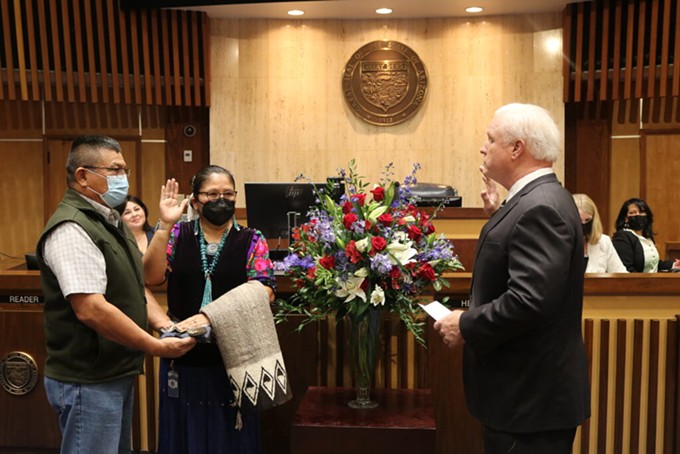
Political party activists, not county supervisors, would get the final say in who fills vacant seats in the legislature under a proposal advanced by the Senate Government Committee.
Currently, if members of the legislature resign, die or otherwise vacate their seats, the precinct committeemen — the elected, voting members of a political party’s organization — from the departed lawmaker’s district nominate three finalists to fill the vacancy. The board of supervisors from the former lawmaker’s county then selects the replacement from that group.
Senate Bill 1063 would change that system to remove the county supervisors from the equation. The precinct committeemen, or PCs, as they’re often referred to, would make the decision themselves.
The bill would make another significant change. Under the current system, only PCs from the county the former lawmaker lived in get a say in who the three finalists are for to fill a vacancy.
In some parts of the state, that restriction is irrelevant. Fifteen legislative districts on the current legislative map, and 17 in the map recently approved by the Arizona Independent Redistricting Commission, are wholly contained within Maricopa County.
Other districts, however, span many more. The current District 7, for example, includes portions of seven counties.
Sen. Vince Leach, the bill’s sponsor, cited the districts that traverse multiple counties as the impetus for the bill.
Last year, Rep. Bret Roberts, Leach’s seatmate in District 11, resigned and moved to South Carolina for a new job. Leach, an Oro Valley Republican, noted that the 77 elected PCs in Pinal County, where Roberts lived, selected the finalists, while the 162 elected PCs from the Pima County portion of the district sat on the sidelines.
“Think about that — shut out of the process,” Leach told the committee. “What this bill does is it says everybody gets to vote.”
It’s the 230 elected PCs in the legislative district who should have made the decision, not the Pinal County Board of Supervisors, Leach said.
Precinct committeemen are the foot soldiers of political parties. They are elected by voters during the primary elections that occur in even-numbered years. They largely handle local political matters in their legislative districts, but also play a role in county party activities and vote for the state committeemen that guide state party actions.
Sen. Warren Petersen, R-Gilbert, said the legislature should delegate more power to PCs when it can.
“They know the people in their district better than anybody — better than the board of supervisors, I must say,” he said.
PCs and county supervisors sometimes have divergent interests. The PCs represent the grassroots base of the party, and at times their first choice is overridden by the board of supervisors. The bill also comes as many Republicans are at odds with the Maricopa County Board of Supervisors over its rejection of false claims that the 2020 election was rigged, a conspiracy theory embraced by many in the GOP.
Though Leach said there should be bipartisan support for the bill, the committee’s Democrats weren’t sold. Sen. Theresa Hatathlie, of Coal Mine Mesa, who was appointed to the Senate in January, questioned whether people in one county know other counties well enough to make decisions about who should represent them. Leach countered that the same factor is in play in regular elections. It’s up to the candidates themselves to convince PCs that they’re the right person for the job, he said.
Sen. Martin Quezada, a Glendale Democrat who originally came to the legislature through appointment, said he liked that the bill includes all of a district’s PCs in the replacement process, not just the ones from the former lawmaker’s county. But he didn’t want to remove the supervisors from the process. He told Leach he was voting no, but appreciated his efforts to reform an imperfect system.
“I like to have that protective layer of the board of supervisors to ensure that the right person is selected,” he said.
Arizona Mirror is part of States Newsroom, a network of news bureaus supported by grants and a coalition of donors as a 501c(3) public charity. Arizona Mirror maintains editorial independence. Contact Editor Jim Small for questions: info@azmirror.com. Follow Arizona Mirror on Facebook and Twitter.

